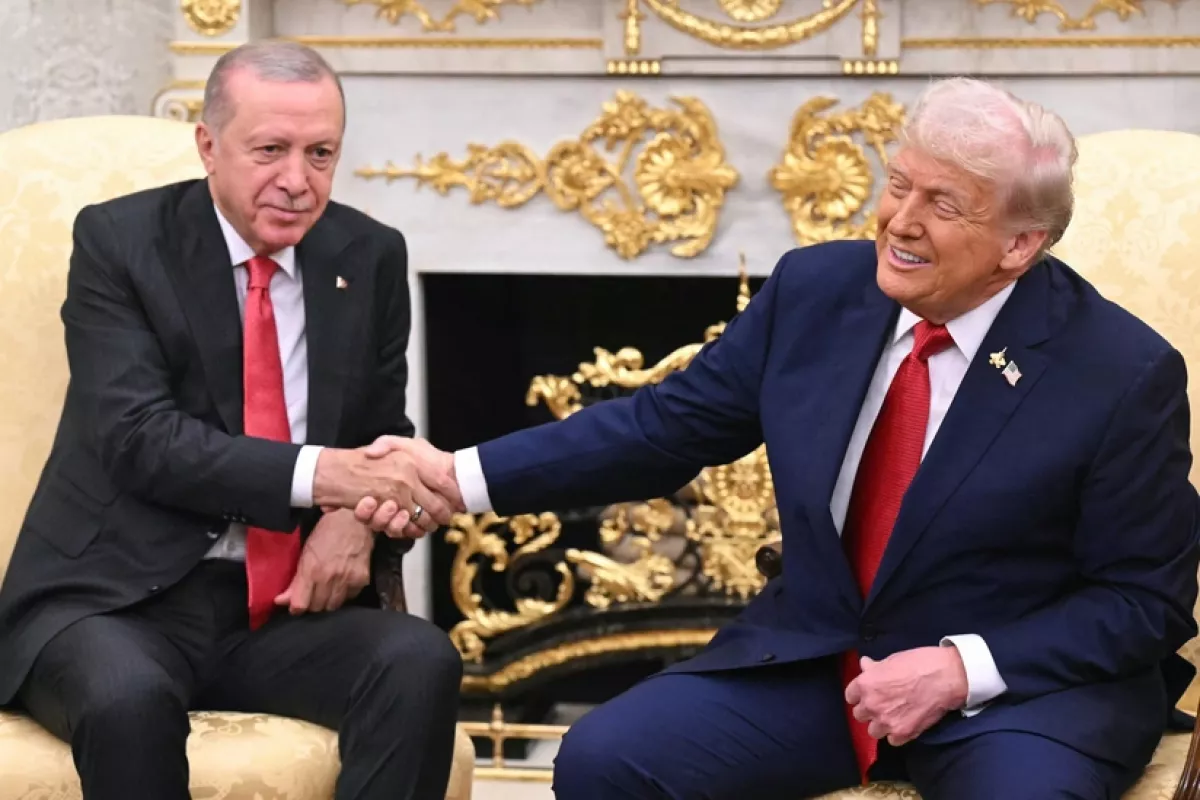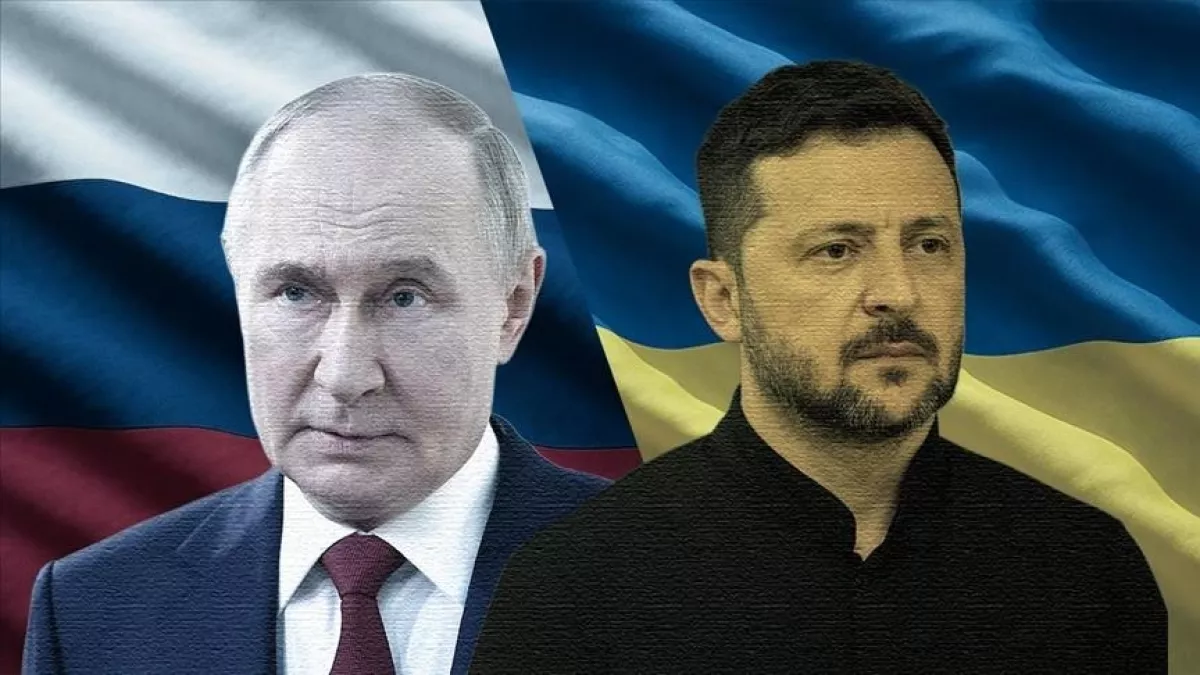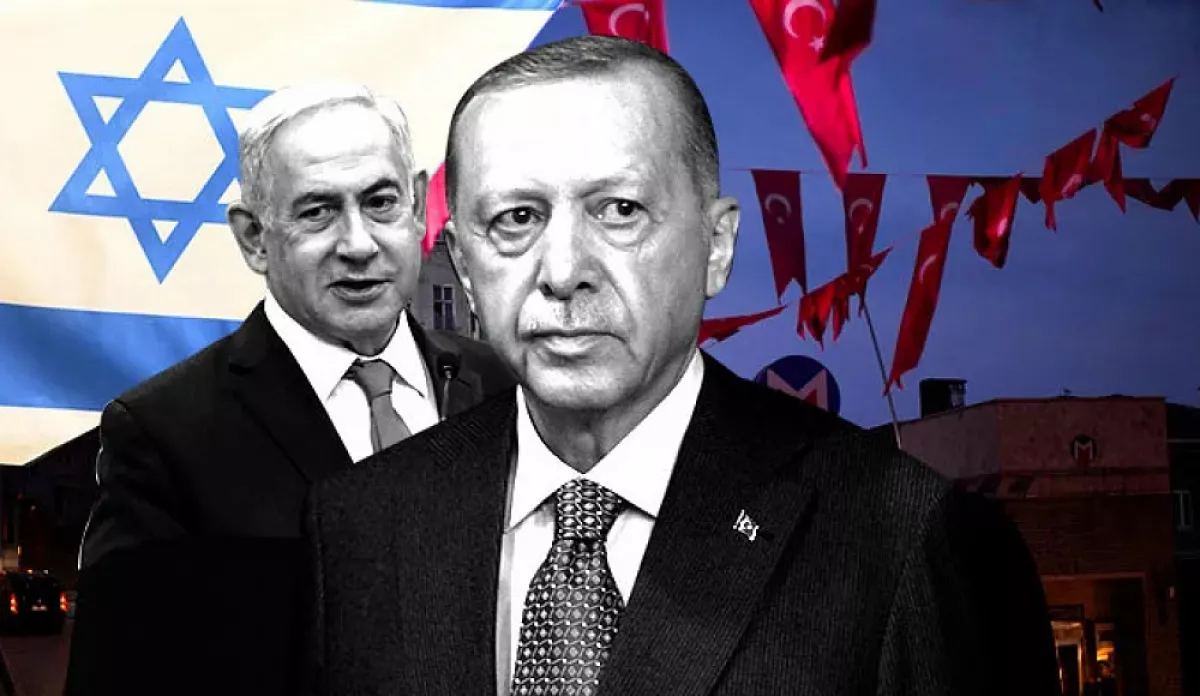Türkiye’s global role confirmed: F-35 and regional influence back on track Erdoğan negotiates on equal footing
On September 25, President Recep Tayyip Erdoğan of Türkiye conducted high-stakes talks in Washington, achieving a breakthrough that revitalised relations stalled under previous US administrations. The discussions not only reopened the dialogue but also brought Türkiye’s key strategic interests back to the table under favourable conditions. Among the central outcomes is the potential procurement of advanced F-35 fighter jets — a deal symbolising Washington’s recognition of Türkiye’s crucial role across multiple regions.
Negotiations on an equal
Currently, Erdoğan is one of the few global leaders who can speak with Donald Trump without subservience. Remarkably, he enjoys Trump’s respect for maintaining a firm stance. Erdoğan has demonstrated that dealing with Trump does not require grovelling, as some Euro-liberal elites assumed. Speaking on Fox News earlier this week, he emphasised that Türkiye would not tolerate issues surrounding fighter jets it has already heavily invested in, challenging the very framework of the bilateral relationship: “I do not believe this [suspension of deliveries] is appropriate for a strategic partnership, and I do not think it is the right path.”

However, the issue goes beyond Erdoğan’s personality. Türkiye’s position in NATO is based on different principles than those of many “New Europe” members, who often cannot adequately defend themselves. Within the alliance, Türkiye maintains the second-largest army after the United States.
While Western European countries have lost much of their strategic autonomy and cling to the US for protection, Türkiye has consistently defended its interests, believing that even if asserting its rights temporarily strains relations, only through such negotiations can minimally healthy, equitable partnerships be maintained. Disputes, Erdoğan argues, are an inherent part of such relationships..
This approach was evident in the main topic of the talks—the longstanding problems surrounding deliveries of ordered weapons and US sanctions against Türkiye. The issue emerged when the Turkish government purchased Russian S-400 air defence systems in 2017, and in 2019, they were formally inducted into the Turkish army despite Western objections.
The Turks did not back down, prompting US sanctions on Türkiye’s defence industry. Washington immediately excluded the country from the F-35 program, claiming that using both systems in parallel could reveal F-35 vulnerabilities to Russia. In reality, the issue was about controlling the arms market, particularly the expensive and high-demand air defence and air force segments. American weapons manufacturers also sought a monopoly on supplying these systems to Türkiye as part of the F-35 deal.
From 2019 onward, Erdoğan did not visit the White House. Then came the Biden administration, which, along with Euro-liberal allies, accompanied strategic disagreements with loud standard accusations against Ankara regarding human rights, driving relations into an even greater stalemate and reducing human rights to a caricature.
The current return to the F-35 issue shows that Ankara effectively insisted on its position. On the table this week were lifting sanctions, compensating $1.6 billion of Turkish investments in the F-35 joint production program, and resuming deliveries. These deliveries, along with the aircraft themselves, will allow Türkiye’s defence industry to gain experience in production and maintenance.
Ankara also intends to sign contracts with US partners to modernise its existing F-16 fleet. Turkish Airlines plans to purchase 225 Boeing aircraft for $22 billion, strengthening its position as a key international carrier amid disruptions in global air traffic.
Trump summarised the results: “I think you [President Erdoğan] will succeed in acquiring the things you want to buy.” He added that it was a “good meeting.” Agreements were reached on Boeing aircraft and cooperation in the field of civil nuclear energy. The prospects for resuming F-16 deliveries and, most importantly, the F-35 program are very favourable. This represents US recognition of Türkiye as a partner in crucial regions: the Middle East, the Mediterranean, and the Balkans.
Trump’s new global security architecture is being built around these partnerships, rather than NATO, which liberal elites have weakened into a conglomerate of countries with unclear obligations and questionable collective defence capabilities. In this context, the Washington talks can also be seen as a continuation of Trump’s rapprochement with the UK, another alternative partner. It is worth noting that the Turkish government is a Trump ally in his disputes with the Euro-liberal establishment.
Mediation between Putin and Zelenskyy
Türkiye’s international importance was also highlighted in other areas. Trump indicated that he hopes Erdoğan will assist in mediating between Putin and Zelenskyy, both of whom respect the Turkish leader: “I believe he [Erdoğan] could have significant influence [on the Ukrainian crisis], if he wishes.” Indeed, the only serious negotiations during the Russia-Ukraine war have occurred on Turkish soil.

Economic independence and Russian energy
Naturally, the US president uses his entrepreneurial skills to extract a price for the discussed agreements, such as Türkiye’s potential reduction of Russian energy imports. Trump uses the confrontation between Western liberal elites and Russia as a pretext to redistribute markets in his favour. But Türkiye has long made it clear it will not allow itself to be manipulated: it condemned Russia’s invasion of Ukraine, supplied Kyiv with weapons, yet avoided sanctions against Russia and continued to maintain relations with Moscow.
The loud US rhetoric about breaking trade with Russia carries an additional economic meaning. Even Trump’s rapprochement with Moscow signals an attempt to intercept Russian energy supplies to Europe and, through mediation, supply the same resources to the same countries, taking a share for himself. Why should Türkiye agree to an unfavourable realignment? EU pressure is even less convincing, given its long-standing attempts to interfere in Türkiye’s domestic policy.
Since January 2023, when the EU blocked most maritime Russian oil shipments, Ankara has purchased Russian oil, gas, and coal worth over $90 billion—more than any country except China and India, prompting Euro-liberal media outrage. Türkiye supports Ukraine’s territorial integrity but does not view EU sanctions as a solution, demonstrating real sovereignty. Recent experience shows that sanctions do not resolve problems, as has been evident in Ukraine and elsewhere.
Trump is unlikely to expect Türkiye to abandon Russian oil or gas seriously. He needs Türkiye too much to risk relations over this issue. His current stance is evident: even when starting a global trade war, he imposed only 15% tariffs on Turkish goods, minimal compared to other countries. In contrast, during his first term, 50% tariffs on Turkish steel caused serious economic repercussions.
Relations with Israel
Challenges in the rapprochement between Türkiye and the United States are primarily connected to strategic dilemmas regarding their relations with another key Middle Eastern country—Israel. These dilemmas, however, have existed for a long time. Erdoğan has regularly criticised Israel over the past two decades, sometimes without choosing his words carefully.
At the same time, under his leadership, Turkish-Israeli trade steadily increased, setting new records—reaching $7 billion in 2023. While these economic relations were suspended in May 2024, in the context of all the above, there is no reason to speak of insurmountable disagreements.

Fundamentally, Türkiye’s issues with Israel are a matter of negotiation, arising from strategic competition, primarily regarding Palestine, Syria, and several other regions.
Specifically, Türkiye, due to its close involvement with the new Syrian government after December 2024, has effectively reached the borders of Israel. Israel, relying on Druze fighters, began openly carving out a zone under its control from Syrian territory, while the United States continued working with Kurdish formations outside Damascus’ control, linked to the former PKK, which Türkiye considers irredeemably terrorist.
At the same time, Ankara, which has long collaborated with various Palestinian organisations, including Hamas, objects to the Israeli government’s intentions in recent years, in cooperation with the United States, to fully resolve the Palestinian issue on its own. Therefore, the scale of the confrontation between Türkiye and Israel should not be exaggerated — it is rather a matter of finding a new model of interaction after significant shifts of power in the region. Notably, no tensions regarding this issue were observed during Erdoğan’s meeting with Trump.
Most importantly, considering the close relationship between Trump and Israeli Prime Minister Netanyahu, as well as Trump’s connections to political forces in the United States that support Netanyahu, the American leader’s readiness to resume deliveries of advanced weapons to Türkiye — including the F-35 — serves as a signal from Israel to Türkiye about its willingness to seek a coexistence model in the region.
Netanyahu had long opposed any country in the Middle East, other than Israel, from gaining access to the F-35. He agreed to an exception only for the UAE, which, in recent years, became a close ally of Israel and, due to objective reasons such as geography and physical limitations, cannot challenge Israel. The Israeli side seeks to maintain its monopoly on the use of the most advanced American aviation technology in the Middle East, as reliance on air power has traditionally allowed Israel to operate actively across the vast region.
The introduction of advanced aircraft into any other country creates a dangerous precedent from the standpoint of preservation. This development is therefore a signal not only from Trump but also from Netanyahu—a signal indicating a willingness to negotiate and recognise Türkiye’s interests and its significance in the region.
Geopolitical implications
Considering Ankara’s international alliances and projects with South Caucasus and Central Asian countries, both Turkic and non-Turkic, the resumption of modern US arms supplies represents a significant geopolitical shift not limited to the Middle East.
In the future, Türkiye will be able to more effectively support its allies militarily to the east and strengthen its political, economic, and cultural influence in the South Caucasus and Central Asia through military means. These capabilities may be needed given the increasing disintegration of the international legal system, the redrawing of borders, and the South Caucasus and Central Asia emerging as a crucial corridor for interaction between Europe and East Asia, particularly China, as well as a key source and route for supplying natural resources to Europe and East Asia.








